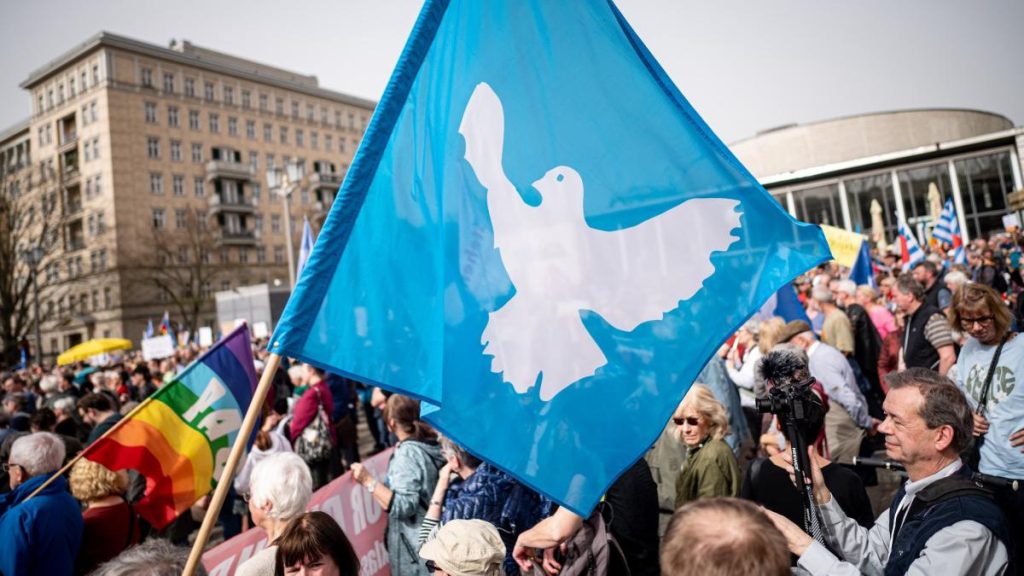Thousands of people took to the streets in many German cities during Easter marches, calling for disarmament, peace negotiations, and a halt to arms deliveries to Ukraine. The focus was on Berlin, where around 3,500 participants gathered. This year, the marches highlighted Russia’s illegal war against Ukraine and the Gaza conflict. Chancellor Olaf Scholz and other government leaders urged continued military support for Ukraine in its defense efforts, citing German security interests. The organizers were satisfied with the turnout, with over 10,000 participants across Germany, including 3,500 in Berlin, 2,000 in Stuttgart, and 1,000 in Bremen, among others.
Peace activist, Willi van Ooyen, noted over 120 actions, marches, peace services, bike demonstrations, and rallies nationwide during the Easter marches. In Berlin, participants carried signs advocating for friendship with Russia and solidarity with Palestine, while others protested against the German government. Russian and Palestinian flags were also displayed. Chancellor Scholz emphasized the importance of supporting Ukraine for a just peace, stating that it was crucial for Germany’s security. Vice Chancellor Robert Habeck echoed this sentiment, stressing that supporting Ukraine was not just out of solidarity but also in the interest of Germany and Europe. Habeck warned of the challenges ahead in seeking peace, particularly in the face of Russian aggression.
Foreign Minister Annalena Baerbock underscored the importance of not neglecting Ukraine’s defense, as failing to do so could have implications for European peace and stability. Finance Minister Christian Lindner cautioned against letting Ukraine down, as Putin’s intentions extended beyond Ukraine to reshape Europe’s peace and freedom order. Lindner emphasized the need to support Ukraine to avoid the looming threat on Europe’s doorstep. Former President Joachim Gauck warned of the consequences of not aiding Ukraine, highlighting the potential destabilization of the European peace order and its impact on other countries. Opposition leader Friedrich Merz called for attention to Putin’s actions and urged Ostermärschierers to direct their efforts towards Putin’s regime in Moscow.
The leaders rejected the idea of freezing the conflict in Ukraine, raised by SPD parliamentary leader Rolf Mützenich, as it could play into Putin’s hands by allowing him to consolidate his gains, rearm, and strike again. Lindner and Gauck expressed skepticism about the effectiveness of freezing the conflict, noting its failure in the past and the risks associated with it. The leaders stressed the need to continue supporting Ukraine to prevent further aggression and maintain stability in Europe. Admonitions were issued against complacency or fatigue in supporting Ukraine, as it could lead to a loss of peace and freedom in the region. The Ostermärschierers urged for continued solidarity with Ukraine to preserve security and stability in the face of ongoing threats.


